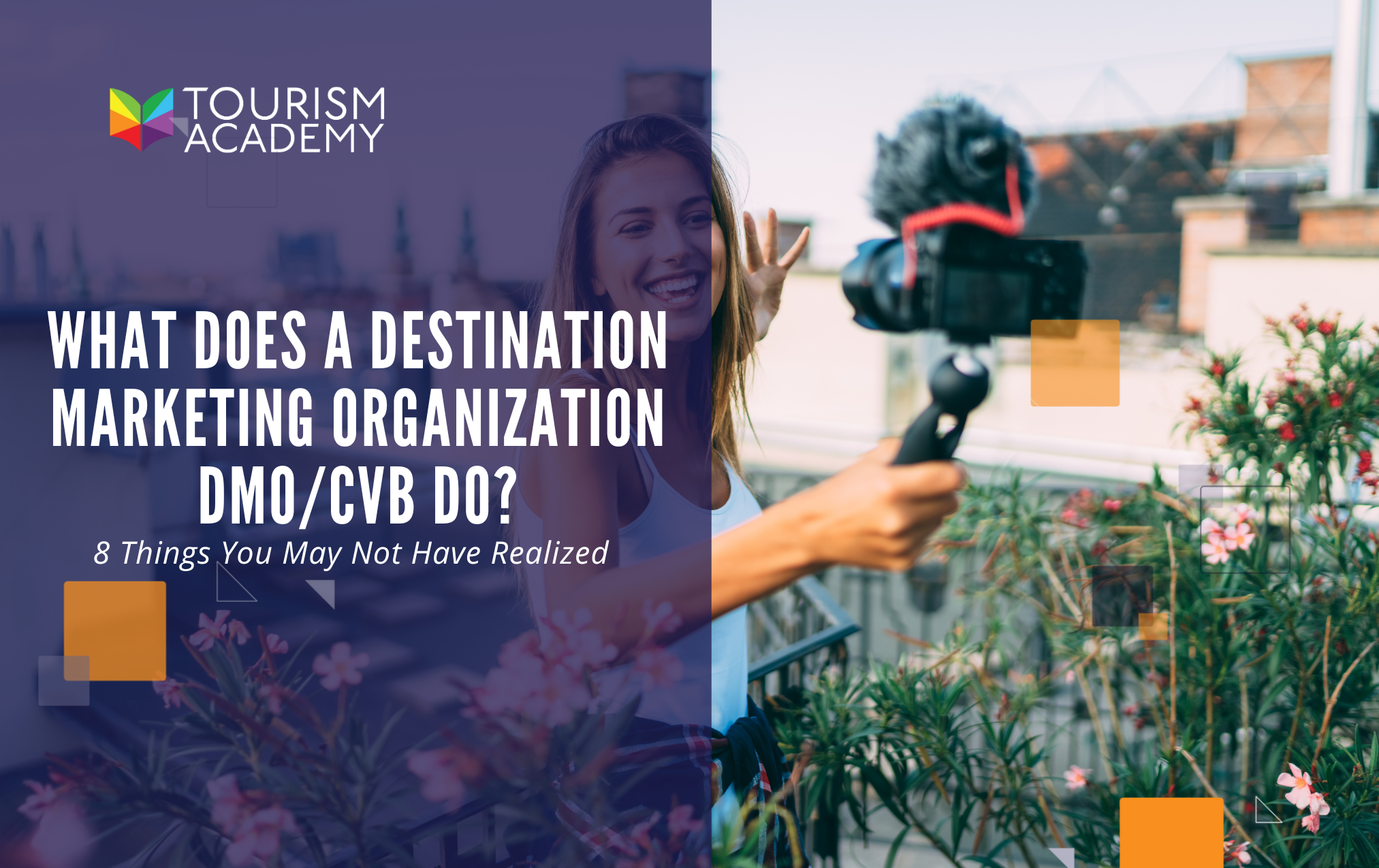
What does a destination marketing organization do?
A Destination Marketing Organization (DMO) or Convention & Visitors Bureau (CVB) is responsible for promoting a specific destination, such as a city, region, or country, to attract visitors and boost tourism. Their primary goal is to increase visitor numbers and enhance the economic impact of tourism in the area.
Here are some of the critical functions and activities typically undertaken by DMOs and CVBs:
-
Destination Promotion: DMOs promote the destination to potential visitors through marketing and advertising campaigns. They highlight the destination's unique attractions, experiences, landmarks, events, and cultural aspects to create interest and generate visitor demand.
-
Marketing and Advertising: DMOs engage in various marketing activities to reach target audiences. These activities include print and digital advertising, social media campaigns, website development, search engine optimization, public relations, and participation in travel trade shows and events.
-
Visitor Services and Information: DMOs provide information and resources to visitors, such as visitor centers, brochures, maps, and websites. They assist tourists in planning their trips, recommending attractions, accommodations, and dining options, and providing general destination information.
-
Convention and Event Support: Many DMOs also focus on attracting conventions, conferences, trade shows, and other events to their destination. They work closely with event organizers, assisting with venue selection, logistics, accommodations, transportation, and promotional support.
-
Partnerships and Collaboration: DMOs often collaborate with local businesses, tourism operators, hotels, restaurants, and other stakeholders to develop and promote the destination collectively. These partnerships aim to create a cohesive and compelling visitor experience.
-
Research and Data Analysis: DMOs conduct market research and analyze visitor trends, demographics, and preferences data. This information helps identify target markets, understand visitor behavior, and make informed decisions about marketing strategies.
-
Advocacy and Stakeholder Support: DMOs advocate for tourism-related policies and initiatives that benefit the destination. They work with government bodies, tourism associations, and local communities to ensure sustainable tourism development and address any industry challenges or issues.
-
Destination Development: DMOs play a role in shaping the development of the destination by providing input on infrastructure improvements, tourism product development, and visitor experience enhancements. They may also collaborate with local authorities and businesses to identify and address gaps in the tourism offering.
Overall, DMOs and CVBs act as the central coordinating body for destination marketing efforts, aiming to increase visitor numbers, prolong visitor stays, and maximize the economic impact of tourism in the area they represent.

Leave a comment